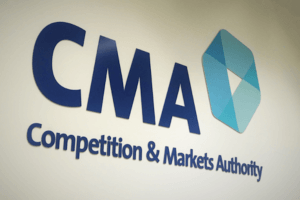
The Competition and Markets Authority (CMA) in the United Kingdom is recommending some sweeping changes to the U.K. audit industry. After issuing its final report from a large-scale investigation into audit practices in Britain, it says some drastic changes are needed to address serious competition problems in the industry.
“Legislation is needed to address both the vulnerability of the industry to the loss of one of the Big Four, and the current inadequate choice and competition,” the agency said in a release. U.K. regulators began looking at the audit industry after some high-profile collapses highlighted audit failures.
The CMA is recommending the separation of audit from consulting services, mandatory “joint audits” to enable firms outside the Big Four to develop the capacity needed to review the United Kingdom’s biggest companies, and the introduction of statutory regulatory powers to increase accountability of companies’ audit committees.
“People’s livelihoods, savings and pensions all depend on the auditors’ job being done to a high standard,” says CMA Chairman Andrew Tyrie. “But too many fall short—more than a quarter of big company audits are considered sub-standard by the regulator. This cannot be allowed to continue.”
The proposal to separate audit and consulting practices could be particularly daunting for audit firms that operate in the United Kingdom. Under the plan, audit firms would need to have separate chief executives and boards, as well as separate financial statements. The change also would end profit-sharing between the companies’ audit and consultancy businesses, as well as ending promotions and bonuses that are based on the quality of audits.
The CMA’s recommendations, outlined in its final report, follow extensive discussions with audit firms, investors, and major U.K. companies on its update paper – published in December. They also take account of the recommendations of a major report from the Business Select Committee, and the inquiry into regulation led by Sir John Kingman.
The recommendations are:
Operational Split
Auditors should focus exclusively on producing the most challenging and objective audits, the report states, rather than being influenced by their much larger consultancy businesses. Given the difficulties with an immediate global structural split, the CMA is – at this stage – recommending an operational split of the Big Four’s U.K. audit work. This will require separate management, accounts, and remuneration: a separate CEO and board for the audit arm; separate financial statements for the audit practice; an end to profit-sharing between audit and consultancy, and promotions and bonuses based on the quality of the audits.
Mandatory Joint Audits
More choice and competition for the audits of big businesses can and should drive up their quality, says the CMA, but the barriers to entry for “challenger” audit firms are currently large. The CMA recommends mandatory joint audits, to increase the capacity of challengers, to increase choice in the market and thereby drive up audit quality. Challenger firms should work alongside the Big Four in these joint audits and should be jointly liable for the results., the CMA says. There should be initial limited exceptions to the requirement, based on criteria set by the regulator, focused on the largest and most complex companies. In addition, any company choosing a sole ‘challenger’ auditor should be exempt. Audits of exempt companies may be subject to rigorous, real-time peer reviews commissioned by and reporting to the regulator. The joint audit requirement should remain in place until the regulator determines that choice and competition have improved enough to address the vulnerability of the market to the loss of one of the Big 4.
Regulation of U.K. Companies’ Audit Committees
It is essential that audit committees choose auditors by seeking those likely to provide the most robust and constructive challenge to the accounting practices of their companies, the report states. The CMA recommends that the regulator should hold audit committees more vigorously to account. This may include ensuring that committees report their decisions as they hire and supervise auditors, and that the regulator issues public reprimands to companies whose committees fall short of adequate scrutiny of their auditors.
A Five Year Review
The regulator should review the effects of these changes periodically, in the first instance five years from full implementation. This should consider in particular: the merits of moving to independent appointment for auditors; whether to go beyond the operational split already proposed; and how to fine-tune the joint audit remedy to adapt to market developments.
“Our recommendations, along with improvements to regulation and clarifying the purpose and scope of audits, will ensure the UK strengthens its position,” says CMA’s Chief Executive, Andrea Coscelli. ![]()

